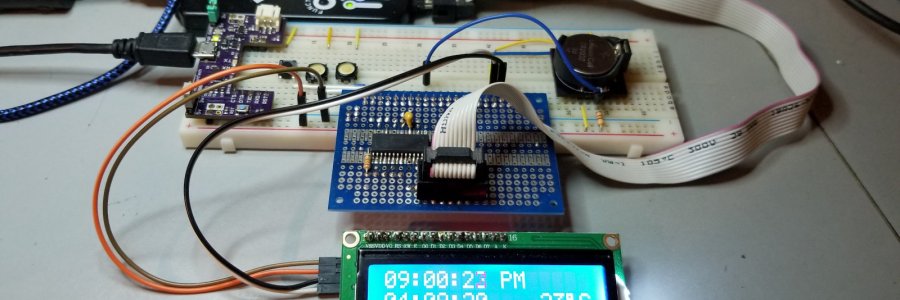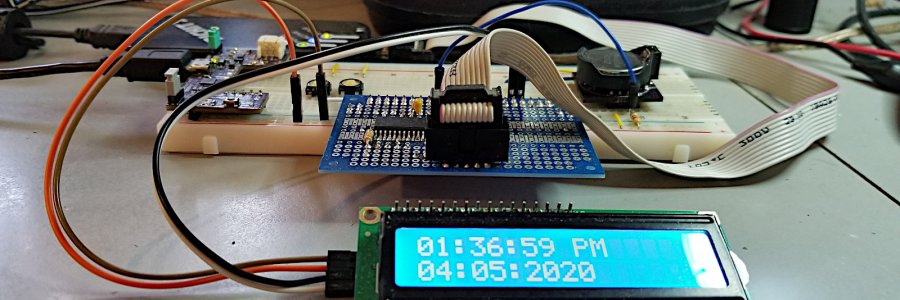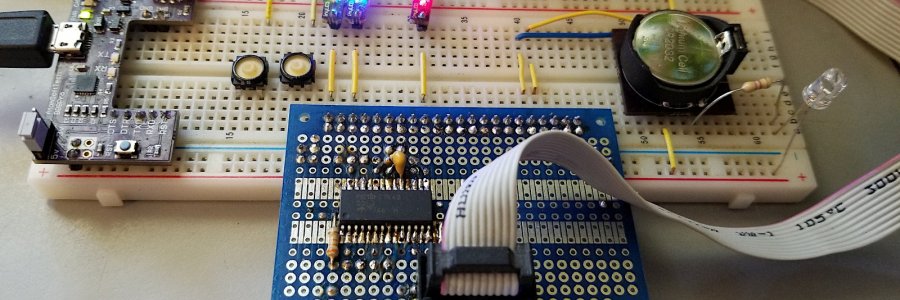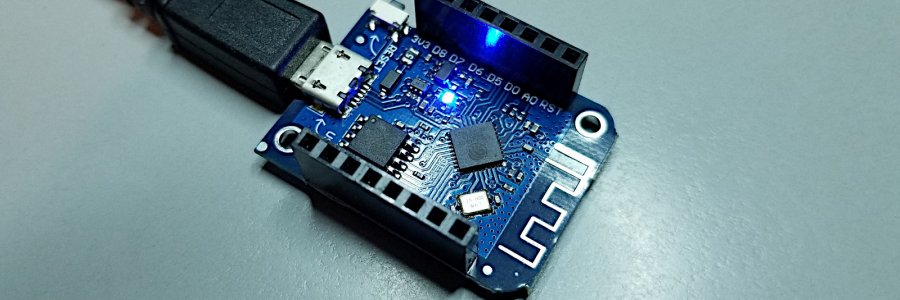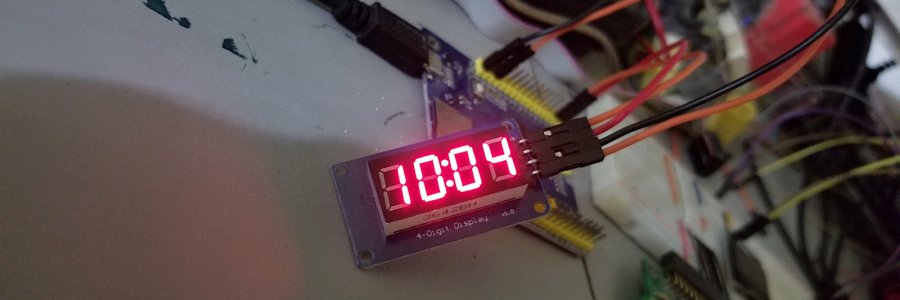A whole lot of rewriting and changes has happened since the last post. It's far from complete, but what's there is fairly useable, I think. I'm a whole lot happier with this code than the last iteration. But that could change quickly. We shall see...
I cut i2c timings down from 20uS to 10uS, and t...
After getting my clock code to the stage it was at in Part 2, I started to refine the code and add features. That code was pretty quick and dirty. It worked, but still needed lots of work.
I started looking at actual i2c timings. I had built my clock code by just picking a random number (100uS) th...
After not looking at electronics for quite a while, and PICs for even longer, I started a project with the PIC16F72 board and soon found out why those savage old chips were being sold from China for cheap. I ran out of memory right quick. Could have probably done it if I switched to assembly langu...
Long time since last post. Other hobbies get in the way, and in my tiny house my electronics bench gets buried.
I bought a Wemos D1 Mini with MicroPython as part of a toy order from universal-solder.ca. Universal Solder is a Canadian company, which I like to support. They have a pretty good sele...
I wrote some code for the PyBoard to drive a TM1637 4-digit 7-segment LED display. The code is basically I2C with no slave, so not terribly difficult to bit-bang.
Then I modified that code to use the PyBoard's RTC to work as a clock. That worked fine, so I thought I would get it going on the Trink...
